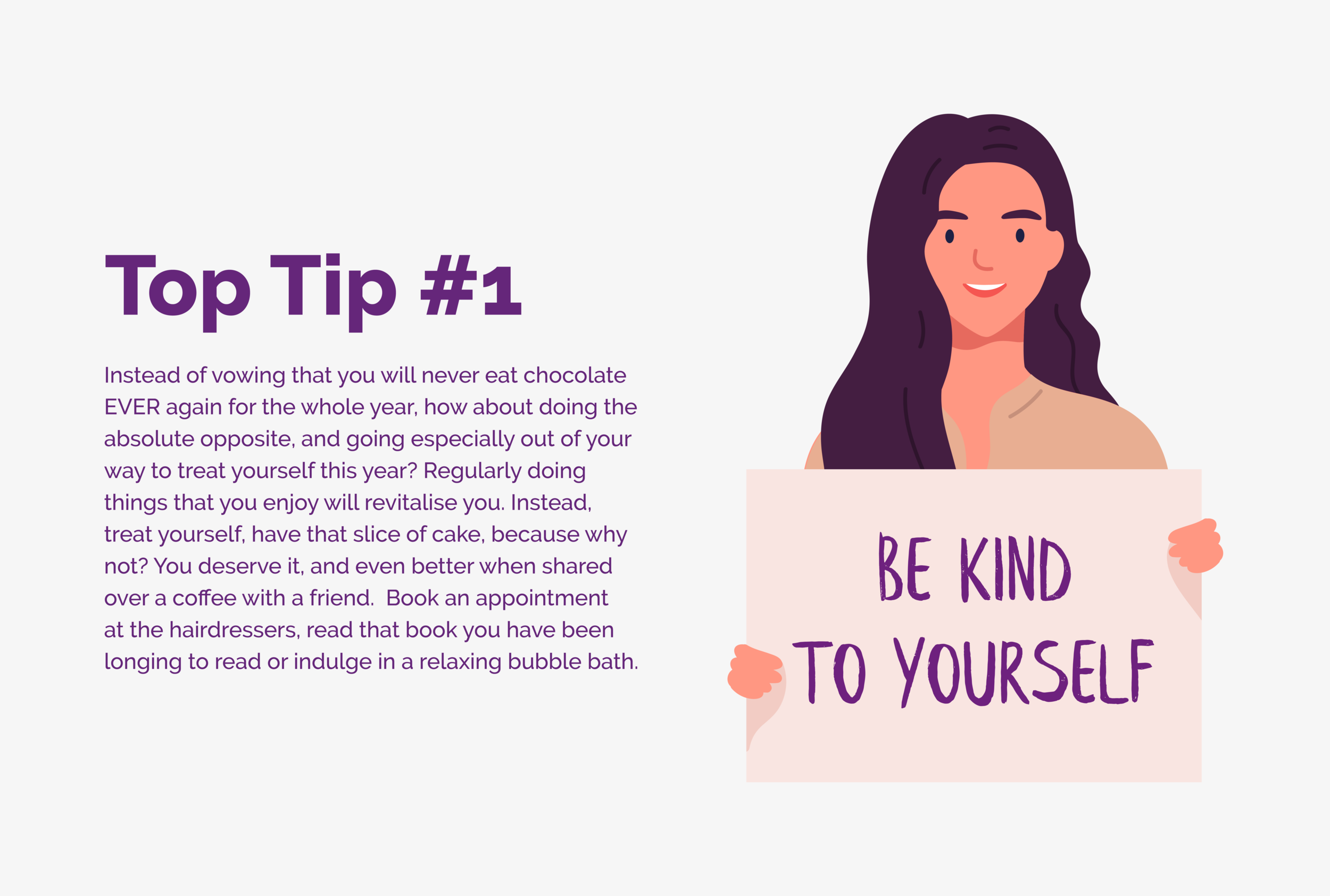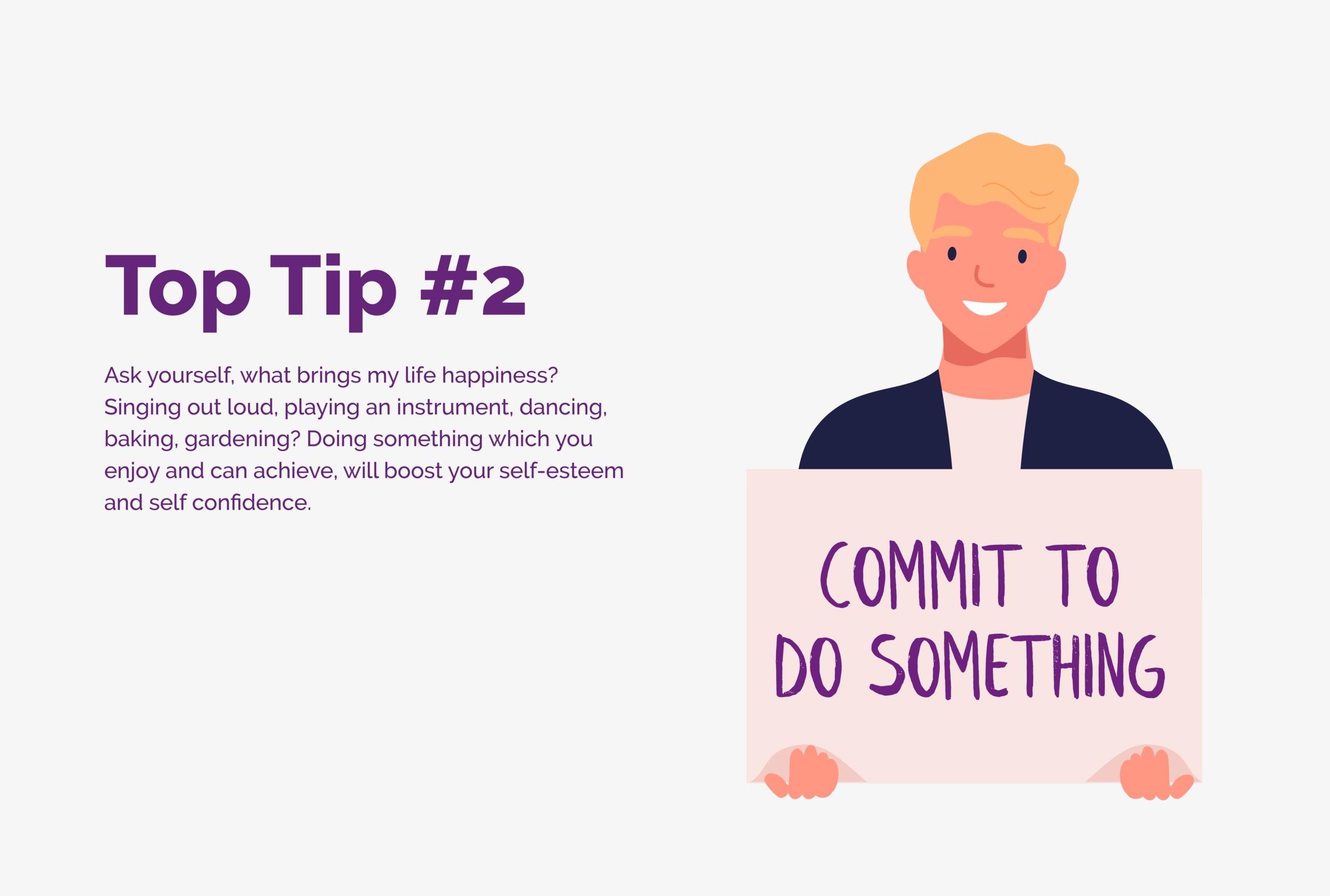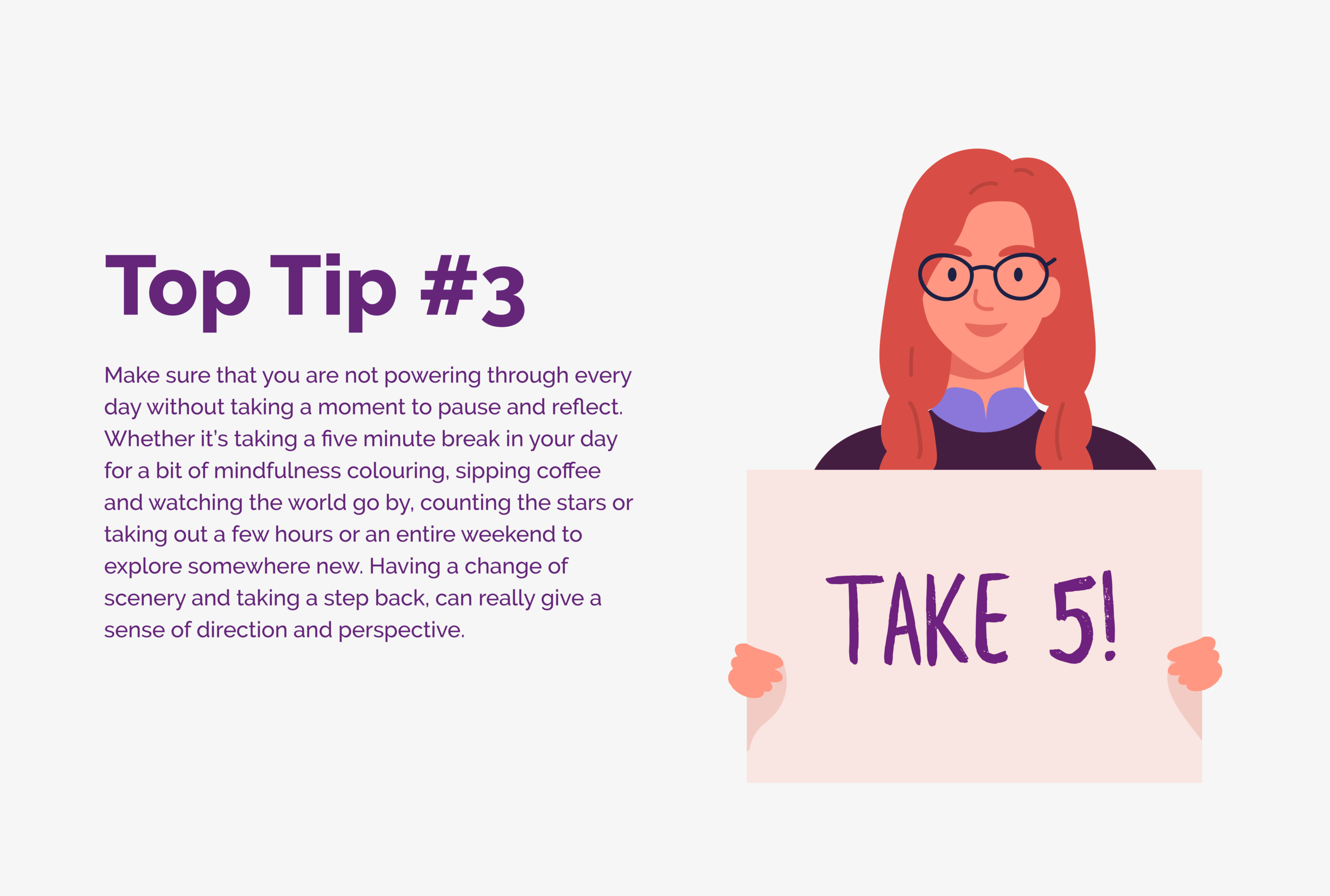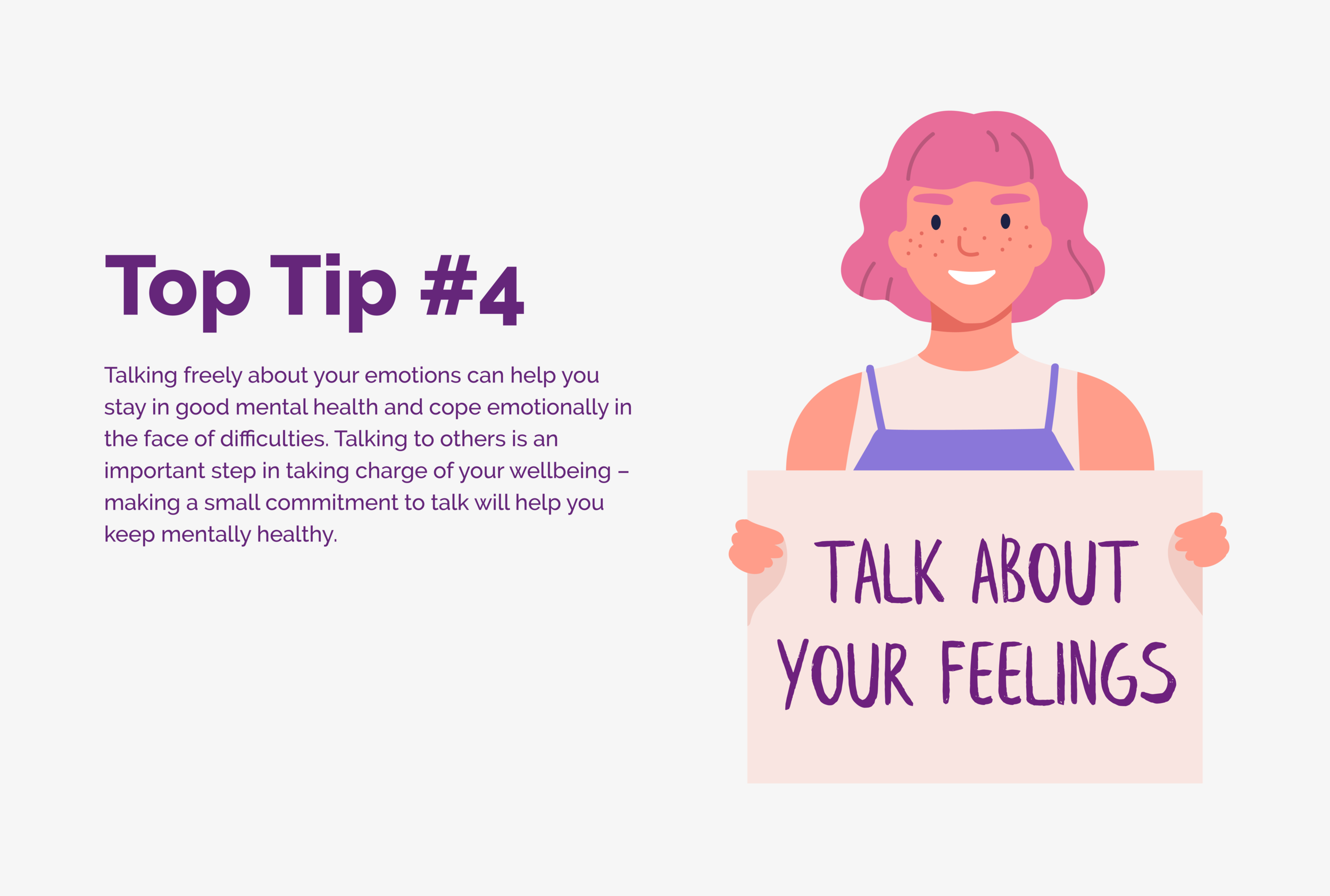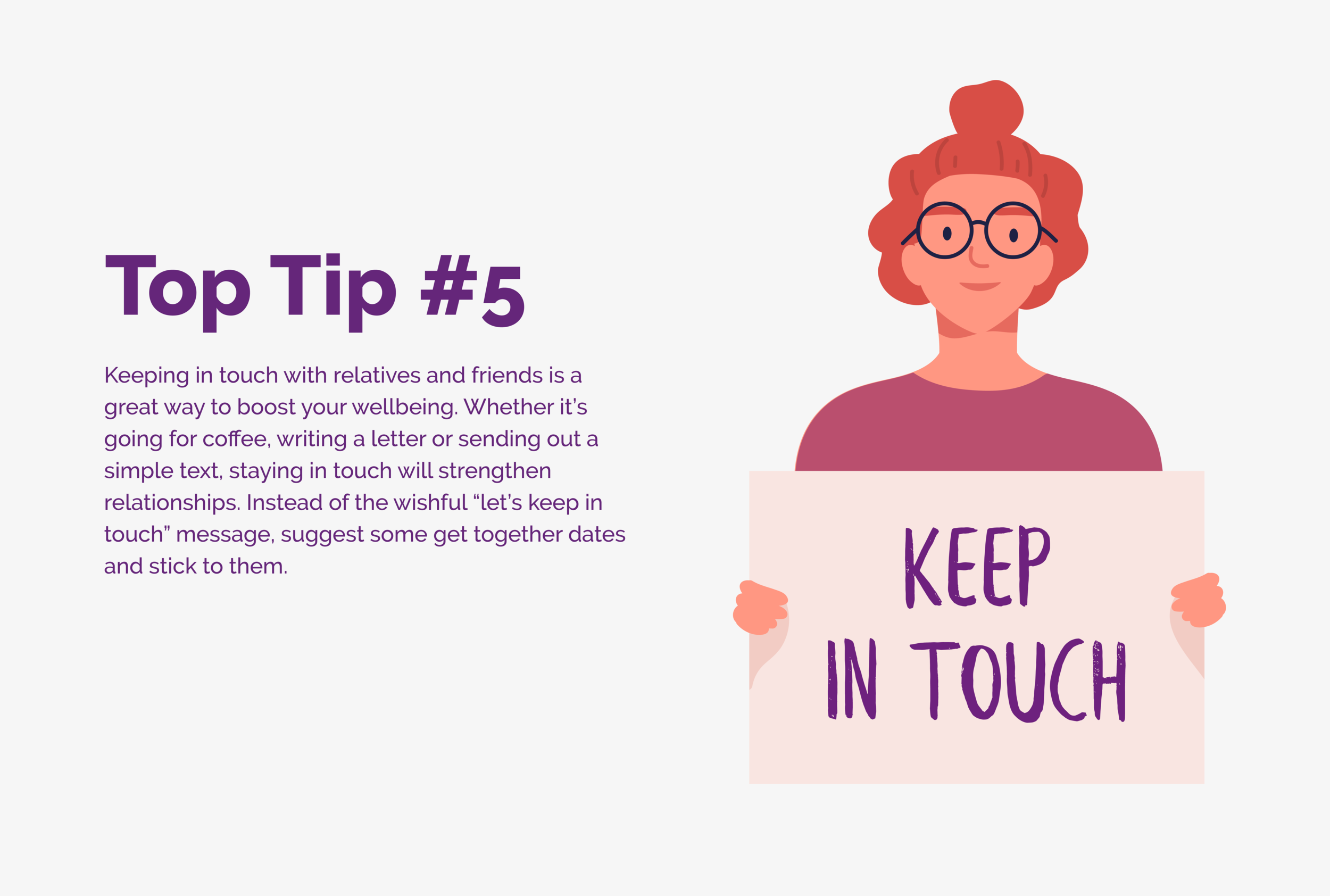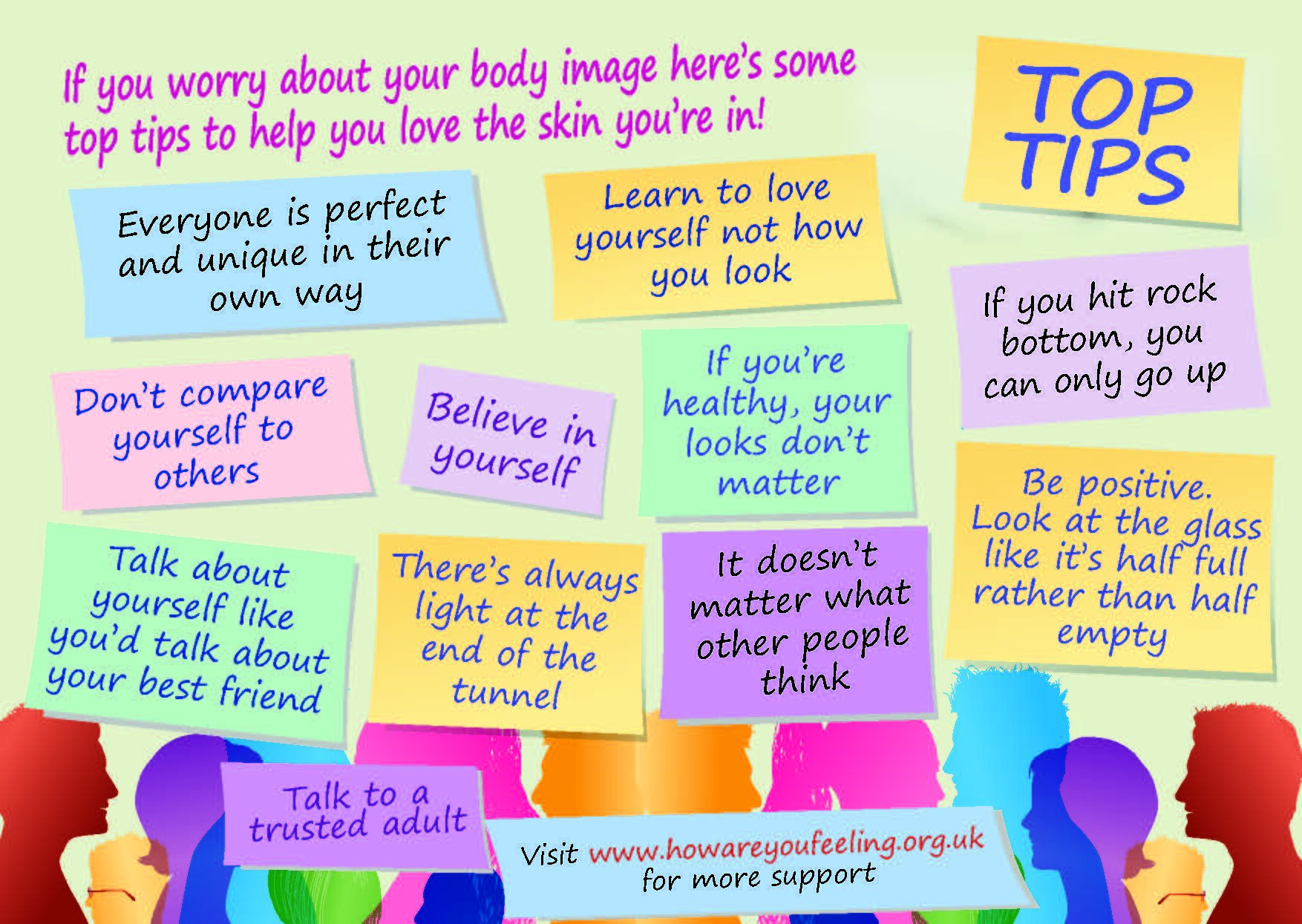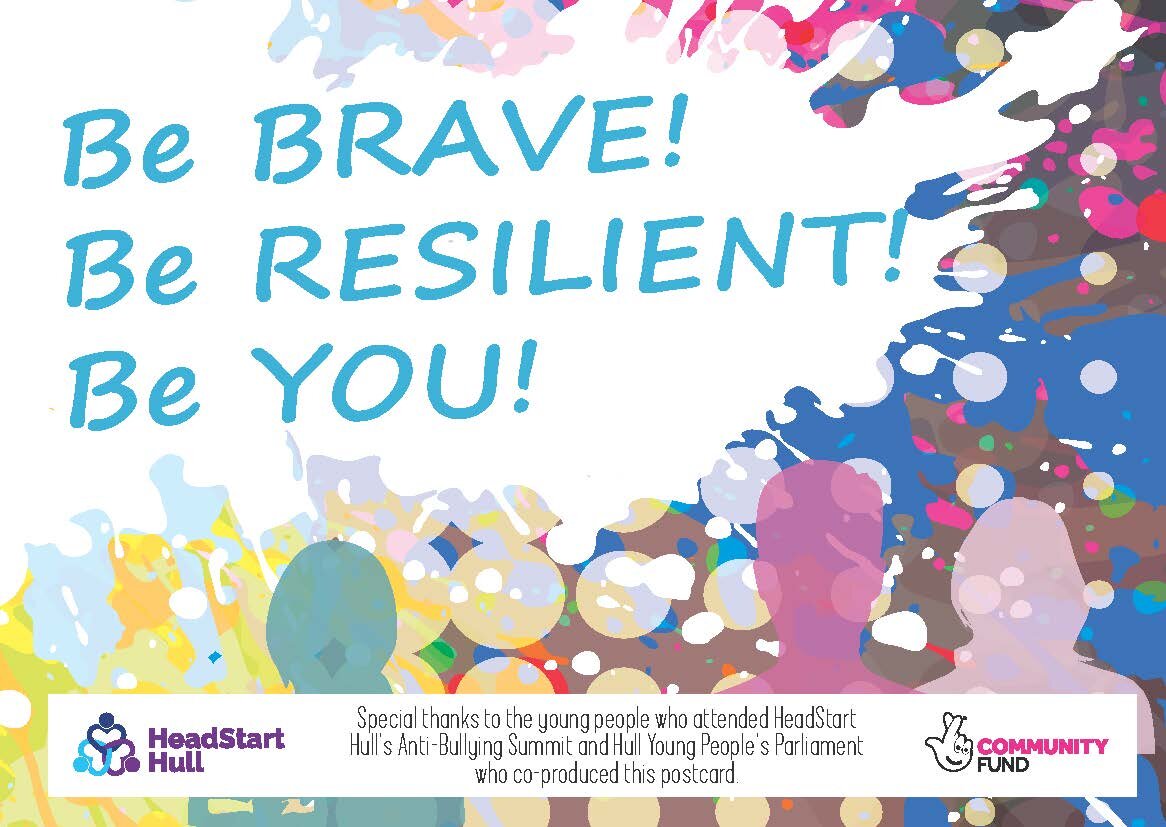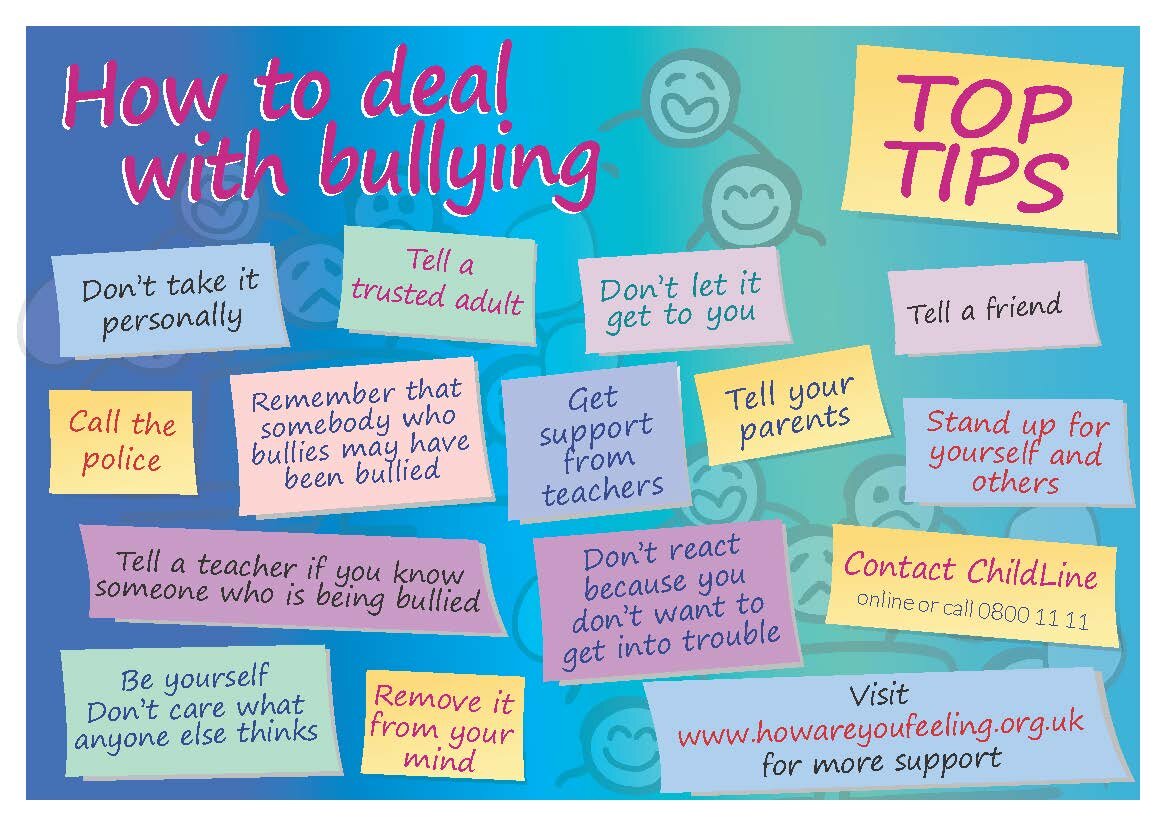
Looking after Yourself
How can I Feel Better?
Staying physically well can help look after your mental health and what you eat has an effect on your mental health too.
Getting a good night’s sleep, taking a walk with your friends and cutting down on sugar can all contribute to good emotional well-being and helps to promote good mental health. Other tips to improve well-being include trying something new, or doing something you’re good at or enjoy.
If you are worried about something at home or have fallen out with friends and are not sure who you can talk to, there are lots of people that can help. Peer mentors are a great way to talk to someone your own age who won’t judge. They can help you to make things better and will also help you to access youth groups, activities or extra support if you need it.
There are lots of things that you can do to look after your emotional health, from just hanging out with friends, to taking up a new hobby.
Top Tips Postcards
Our volunteers created a series of “Top Tip” postcards that give handy, bite-sized advice on several topics such as exam stress and online safety. These have been received well in schools and at many events in the city. Click on the images below to see the cards.
Be Your Own Kind Of Beautiful
If you worry about your body image, here’s some top tips to help you love the skin you’re in!
· Everyone is perfect and unique in their own way
· Learn to love yourself not how you look
· Don’t compare yourself to others
· Believe in yourself
· If you’re healthy, your looks don’t matter
· If you hit rock bottom, you can only go up
· Talk about yourself like you’d talk about your best friend
· There’s always light at the end of the tunnel
· It doesn’t matter what other people think
· Be positive
· Talk to a trusted adult
Be Brave!
Here are some tips on how deal with bullying
· Don’t take it personally
· Tell a trusted adult
· Call the police
· Don’t let it get to you
· Tell a friend
· Remember, a bully might also have been bullied
· Get support from teachers
· Tell your parents
· Stand up for yourself and others
· Tell a teacher if you know someone is being bullied
· Don’t react, don’t get into trouble
· Be yourself and don’t care what anyone else thinks
· Remove it from your mind
· Contact ChildLine if you need to 0800 11 11
Staying Safe Online
Here are some tips on how to stay safe online:
• Never share personal information when playing online games
• Block or report anyone who is not nice
• Never share your passwords
• If you decide to meet someone, do this in a public place and take your parents
• Don’t send pictures to anyone you don’t know
• Don’t follow anyone you don’t know
• Report any bullying to a trusted adult
• Join social media at the right age
• Trust your instincts and tell an adult if you feel uncomfortable about anything
• Screen shot any mean activity
• Check with your parents before doing anything online
• Keep all of your social media accounts set to private
Primary to Secondary
Moving from primary to secondary school can be scary, but here are some tips to help you settle in.
• Be organised and use your planners
• Make sure you’re equipped and bring everything you need for the day
• Don’t be scared to talk to new people
• Find out where you are going and know your classrooms
• Get to know your teachers
• Get involved in clubs
• Enjoy learning new skills
• Always wear the correct uniform
Remember, if you are struggling with anything, ask for help.
Go Your Own Way
Moving on from secondary school can be scary, but here’s some tips to help you.
• Ask someone older who has more knowledge of further education to find out more
• Speak to pastoral teams, parents and carers for their advice
• Don’t give up, you can do this!
• If you are worried, anxious or confused, support groups can help
• Ask someone who attends your chosen college what to expect
• Stand up for yourself
• Get information about the college and what courses are available
• Try to speak to people and make new friends
• Be optimistic
• Stay safe
• Know your options and find out what is available and where
• Attend open events and taster days
Exams Can Be Stressful
Exams can be stressful, but following these tips can help you face them positively.
• Plan your revision and link this to your exam timetable so you revise things in the right order
• Break revision down into a plan of small chunks and you will feel more organised
• Take time out and plan regular breaks. No one can study all day, every day and we can only concentrate fully for 30—45 minutes. Find other things that help you relax
• Make notes by picking a format that works for you such as mind map, revision cards etc
• Keep hydrated and drink plenty of water
• Avoid energy highs and lows by eating well. Slow release foods such as bread, pasta, fruit and vegetables will help
• Keep active: A short walk will do and exercise is one of the quickest ways to de-stress
• Try to get at least 8 hours a sleep at night
• Think about when and where you work best: Some of us are not morning people, and not everybody finds themselves productive in a library. Find the best time and place for you
Remember, if you are feeling stressed, get support by talking to your family, a friend or tutor about how you are feeling.

